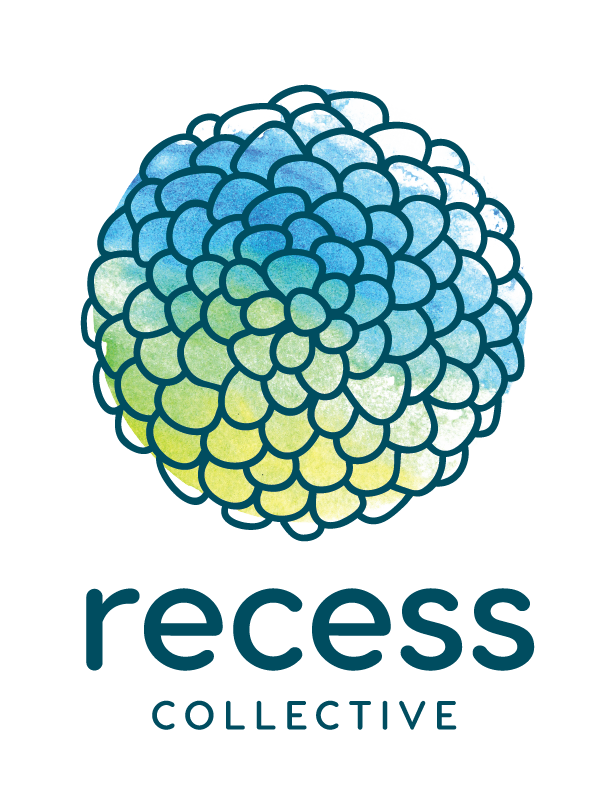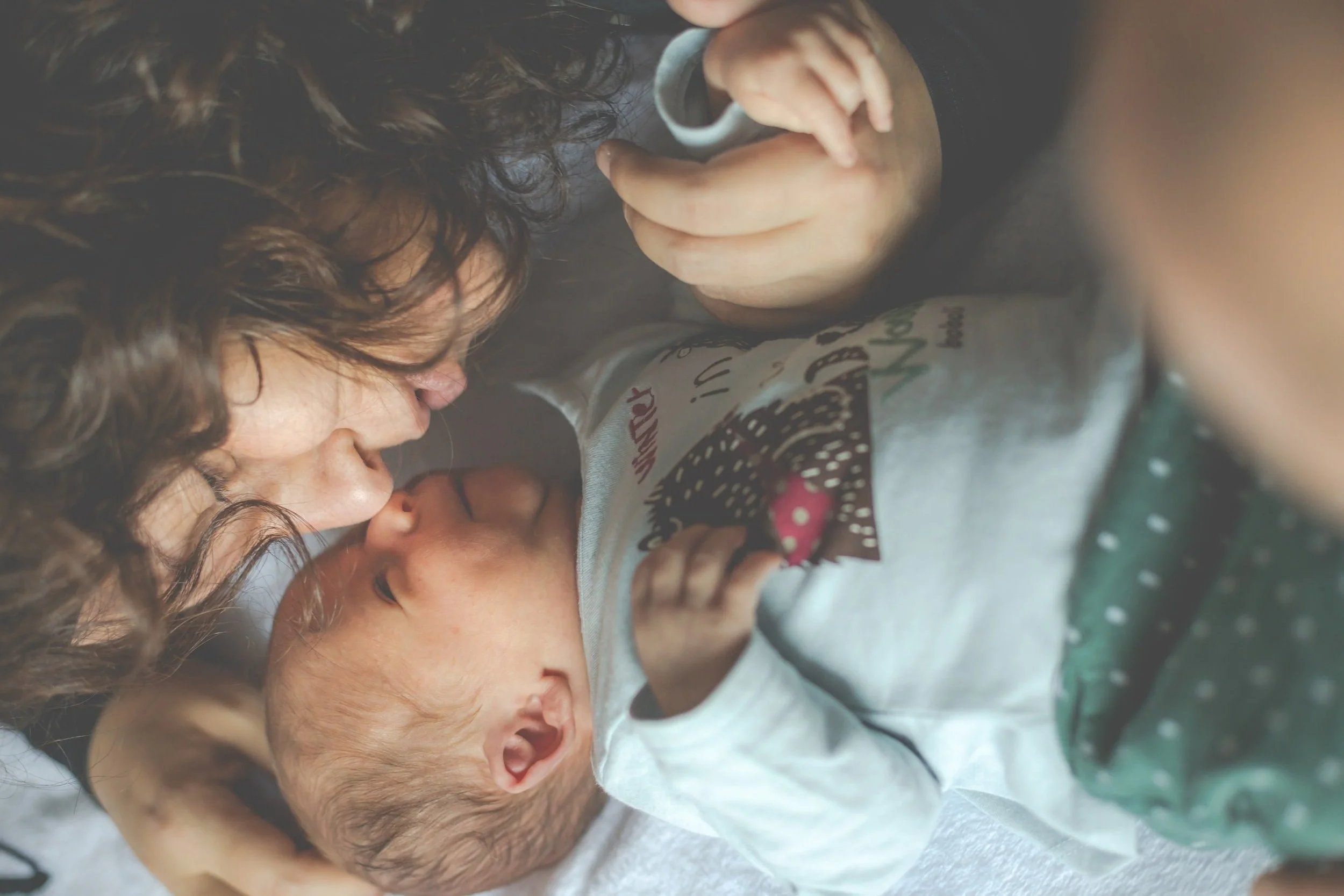An infant’s brain develops quicker during the first thousand days of its life, than at any other time. And, the transformation to your mind and body cannot be understated.
Over the course of our group, we will share resources, make connections, and help you build your parenting toolbox.
Check out our favorite pieces of research-backed information on child development, resources to support you as a parent, local activities, and some recommended reading/listening.
Please don’t hesitate to reach out with questions, or fill out the anonymous form at the bottom of the page to share feedback, let us know what you’d like support with, or information that would be helpful.
CHILD DEVELOPMENT
Caring Relationships Are The Heart of Early Brain Development
This week, we wanted to share the role of early relationships in brain building for your baby. Child development experts describe the communication that occurs between parents as a type of dance, in which different babies and parents engage in a two-way exchange of various interactions. It is believed these high quality, two-way conversations form the very basis of brain development. These interactions help babies make meaning of their experience and, when repeated over and over, forge the connections in the brain that will come to make up their neural circuitry.
This is a deceptively simple and and deeply effective practice.
A baby’s early experiences in relationships, whether at home or in an early education environment, set the stage for future brain functioning.
Birth to 9 months: Caring relationships and the brain during the attachment period
During the first stage of development outside the womb, much of babies’ initial attention focuses on forming and strengthening secure connections with their caregivers. Rather than passively receiving care, babies actively seek it out. They come into the world with physical skills and social competences that prepare them to play an active role in their development. They are wired to react to those around them in ways that elicit interest and increase the likelihood of contact and closeness (Marvin & Britner 2008).
Based on the feedback babies receive from early exchanges, they direct attachment behaviors toward developing secure relationships with their primary caregivers. Research has shown that this attachment-seeking fits with the finding that during the first two years of brain development, emotional wiring is the dominant activity.
The brain builds crucial structures and pathways of emotional functioning that serve as the base for attachment, future emotional and social activity, and the language and intellectual development that will follow (Schore 2000). In this earliest stage, babies start using messages from caregivers to develop perceptions of the extent to which they are loved.
Infants then use these perceptions to create an initial working model for how to engage with others. Thus, the care babies receive during these early exchanges directly affects the quality of attachment they form with their caregivers and influences the emotional stance they will take in interactions with others.
In a nutshell, young babies need relationships with caregivers who are:
Sensitive to their needs and messages
Timely in responding (especially to messages of distress)
Accurate in the reading of their cues
Understanding of appropriate levels of stimulation (Bornstein 2012)
If you want to learn more about the science of it all, check out https://youtu.be/tLiP4b-TPCA
And if you want to delve deep, this article is great.
Parent Stuff
What if I’m not feeling connected?
So, we know that developing a connection with you babe supports their development. We’ll continue to explore ways to strengthen that bond. AND…It’s totally possible you may not feel a deep connection with your infant. In that feeling, try to remember that you are not alone, and you won’t feel disconnected forever.
Practicing activities of sensory connection and emotional expression with your baby, and even with your partner, and family can awaken and deepen your connection.
Here’s the scoop:
Connecting behaviors tell your body and brain to send out connecting hormones (like oxytocin, “the love hormone”). Those hormones make you feel better. When you feel better (even a little bit better), you feel more able to do these behaviors, and it becomes a positive cycle.
So what are these behaviors of connection? Read the full article here
A New Lens on Postpartum Depression and Anxiety: How Connection Can Help | Nurture Science Program
Nourishing Yourself
Let’s discuss: Self Care, self-nourishment in the midst of parenting.
What is truly life giving for you and nourishes your body, mind, and spirit?
As you settle in to the 24/7 nature of caring for another being, it can be wonderful to consider what makes YOU tick. And without pressure to do something right now, it’s great to start thinking about what nourishes you, and how you can infuse those things into your every day life to enjoy this wonderful and crazy journey of parenting.
Here is why:
Me Time isn't selfish but it does allow you to share your whole self with those you love. If you don't allow time to rest and refuel then what you give your family isn't your personal best.
When you are happier you are a better parent.
Self-care is an important part of parenthood.
Your children benefit directly from your personal growth. Growing your life allows you to share more of you with your children.
When we come together next time to build community, we can share support, encouragement and ideas in this realm.
Local Activities
Getting Out
While your little one is little, leverage the free museum days and Discover and Go passes. These allow you to get out of the house and have a safe, clean spot to either meet up with a friend or just venture out solo with your new babe. The Botanical Gardens is another really lovely spot to stroll around, picnic, or just be around other humans.
We love these options for lots of reasons, but if things fall apart, which is entirely possible when you have a newborn in tow, you aren’t “late” for anything or losing out on $, so that takes a little bit of the pressure off.
As you’re getting to know your new babe, and they are getting to know the world, try to be gentle with yourself. It can be an adjustment when it takes a full hour (and 3 diaper changes) to get out of the house. xx
Something to Read or Listen to
As you build your babe’s library, check out some of our favorite books for infants https://bookshop.org/lists/infants-and-up and here. Many are available at Black Bird Bookstore, and if it’s not already on their shelves, they can order.
If you shop at amazon, and would like to support Recess with your purchases (.05% goes to recess…not much, but it’s something!!), shop from this link: https://smile.amazon.com/ch/82-4820054
If you’re curious about how daylight savings time works with baby sleep, check out these recommendations from Dr. Angelique Millette.
https://www.ronniesawesomelist.com/blog/daylightsavings-nov2022








